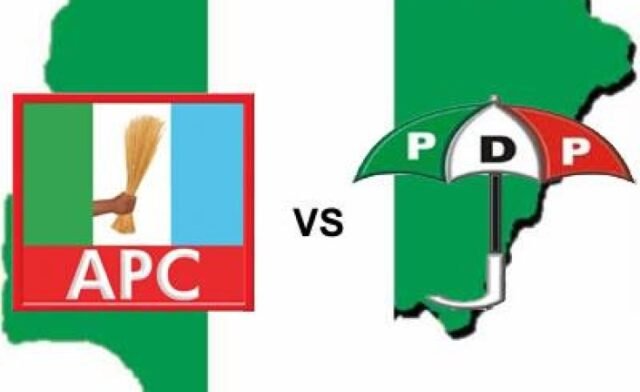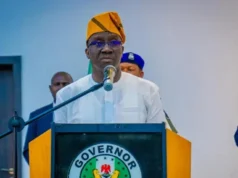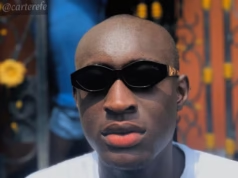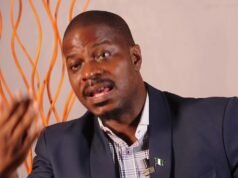Having several strong political parties is essential in a democracy; it is not a luxury. It guarantees accountability, representation, and a competitive political market where leadership, policies, and ideas are put to the test. The vitality of freedom is political rivalry. It enables people to make decisions, reject, and make corrections and from all indication, that oxygen is quickly running out in Nigeria as a one-party system may appear to be around the corner.
In recent weeks, Nigerians have experienced how fast the nation is allegedly turning to become a one-party system country under the Tinubu-led APC administration.
The major opposition party has seen a frightening wave of defections in the last few months. From governors to rep members to cabinet members, senators and party chieftains dumping the party in numbers to join the ruling APC.

Despite claims by the PDP leadership that the massive defections will not impact the party negatively and that the party is not crippling, the reality of this differs as 2 more governors defected. A move that slapped the PDP with a rude shock.
More recently, there are fast growing speculations pointing and suggesting that three more PDP governors are getting ready to dump the party for the APC.
PDP Governors that have exited in 2025
Akwa Ibom state – Governor Umo Eno
Delta state- Governor Sherrif Oborevwori and his predecessor
Enugu state- Governor Peter Mbah
Bayelsa state- Governor Duoye Diri
The list of senators and cabinet members on the other hand is simply endless.
Currently, the APC controls 24 states of the federation leaving PDP with only 8 states and other parties including APGA and Labour Party with 4 states.
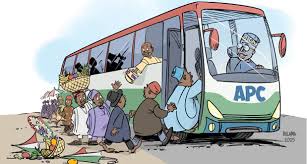
At present, out of the 17 states in Southern Nigeria, President Tinubu’s APC governs Lagos, Ogun, Ekiti, Ondo, Edo, Akwa Ibom, Cross River, Delta, Imo, Ebonyi, and Enugu.
While Kano State is still ruled by the New Nigeria People’s Party, Zamfara, Plateau, Taraba, Adamawa, and Bauchi are governed by the PDP.
Following the very shocking defection of Enugu and Bayelsa state governor, the minister of information has revealed even more concerning information that directly or indirectly suggests that Nigeria may be heading for a one-party system. The minister of information, Idris Mohammed in his words stated that, “I can assure you that by 2026, we will have 30 APC-controlled states as we approach the 2027 general elections to re-elect President Tinubu for a second term”
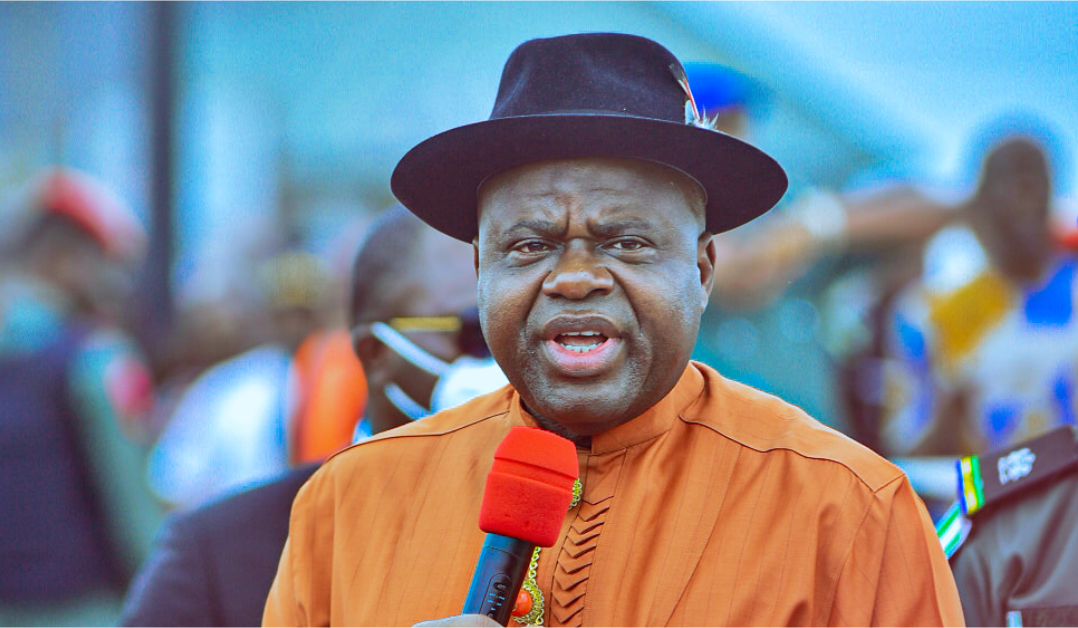
Meanwhile, Seriake Dickson, the senator for Bayelsa West and a former governor of Bayelsa State, responding to Diri, his successor, and other PDP governors who recently defected to the APC, accused them of running away from the “problems they created” within the opposition party.
The former governor of Bayelsa warned that Nigeria’s democracy could only flourish in a pluralistic political system and that the country was progressively becoming a one-party state due to the increasing tendency of defections.
He said, “I am where I have been. I am where I am. I don’t believe that Nigeria should be a one-party state. And as a soldier of democracy, I’m used to the ups and downs of democratic practices and political life, especially. I’m still as constant as the northern star, steadfast in the Peoples Democratic Party,”
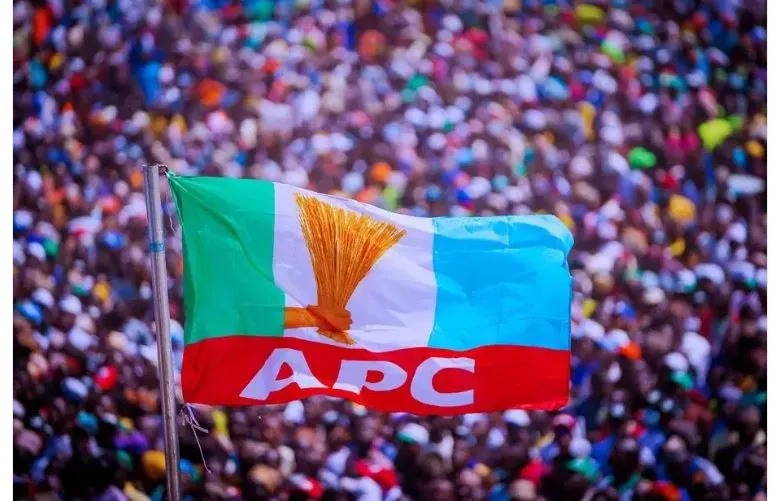
“A plural Nigeria can only thrive in a plural democratic environment. I didn’t see any compelling reason for a second-term governor to defect. I am still standing in the PDP that gave my people — the Ijaw Nation and the Niger Delta — the opportunity to run for election and even become president of the Federal Republic of Nigeria. This other party cannot do that,” he added.
Similarly, several other notable political figures have frowned at the alleged attempt by the incumbent administration to achieve a one-party system in Nigeria. Atiku speaking through his media aide stated that freedom of movement and association is guaranteed but said that the battle line for the 2027 election had been drawn following the recent defections.
Atiku through his media aide said, “The Constitution provides for freedom of association. As a democrat, Atiku Abubakar will not dictate to others with whom they associate. Atiku Abubakar may not know the underpinning factors behind why people are making different decisions.

“However, we know for a fact that the Tinubu-led APC has used institutions of the state, including anti-corruption agencies, to intimidate and coerce leaders of the opposition into their fold.
Additionally, the ADC has also raised concern over the alleged subtle plot for Nigeria to become a one-party state. Tensions and concerns over this subject have now become even more frightening.
Despite the signs playing out, and counter debates by APC loyalists and the presidency that Nigeria will not become a one-party state, more and more defections continue to pour in and while the ruling party continues to grow stronger, other opposition parties become too weak to challenge the seemingly inevitable status quo.
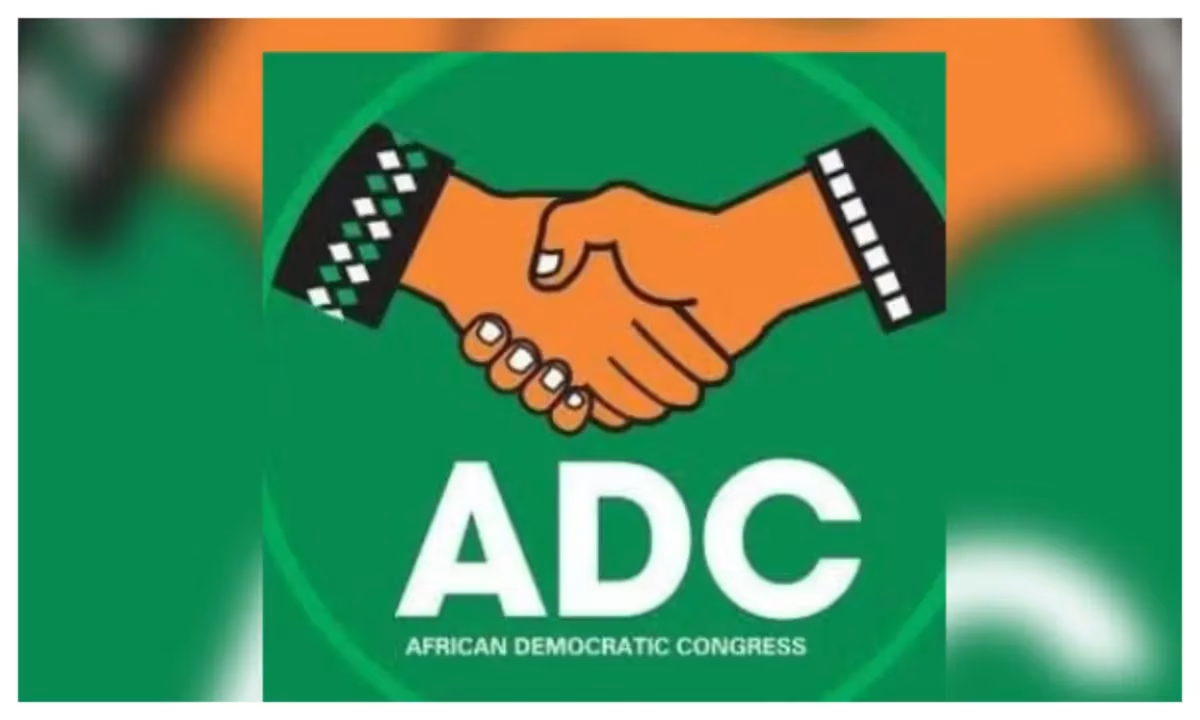
Peter Obi, the Labour Party’s 2023 presidential contender, however has downplayed concerns that Nigeria would become a one-party state, claiming that no political party could “capture” any area just because a governor joined it.
Tension and concerns have now filled the political landscape as there is a wide spread uncertainty regarding what to expect in the coming weeks and months ahead of the 2027 general elections.
The fate of the once dominant opposition party appears to now hang by a thread while other registered political parties like the ADC are unsure of what chance it stands at unseating the ruling administration.
Join Our Social Media Channels:
WhatsApp: NaijaEyes
Facebook: NaijaEyes
Twitter: NaijaEyes
Instagram: NaijaEyes
TikTok: NaijaEyes


